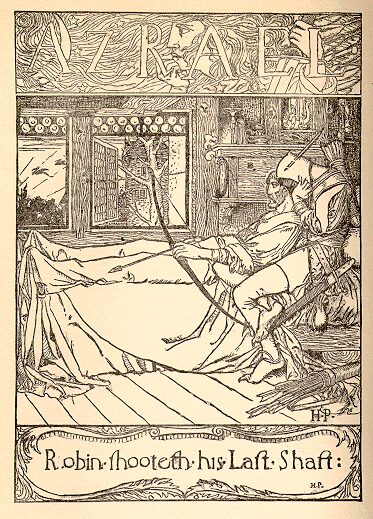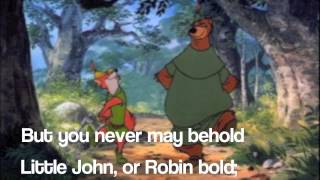Among the poems of John Keats, “Robin Hood “ is of the best. On the subhead, there is written “To a Friend” which means that this poem is dedicated to a friend called Robin Hood.
Keats here writes about his experience and the previous days that he passed with this friend. In 1818 he wrote this poem and send this to his friend. Probably from that time “To a Friend” was added as a subhead.
Summary
The poem is beginning with a line where the poet states that these days are already passed and the glory, and honours have gone. They are buried at the last minute and they are crashed with the soil.
So, nothing is present here, all are done. They left many years ago and now nothing is present except the memory. After that, many winters arrived with northern frozen air.
Even in the wood, it came with noise and it whispered in the forest. But now men know that it never took a rent on the forest. So, there the stanza ends. Here Keats is telling of a death that took place in the past.
“No, the bugle sounds no more,
And the twanging bow no more;
Silent is the ivory shrill
Past the heath and up the hill;”
Now in the next stanza, he is uttering that there is no sound of a buzzer to wake everything up even the twanging bow is no more. There only silence stays which fills with ivory.
In the past, it felt for the health but now it is going up for the hills. The forest is calm at that time no laugh is there even not the mid-forest.

But the silence is echoing from every portion and this echo is amazing to hear. The sound seems to be jesting in the forest a deep sorrow. But from where the sorrow is coming that is not clearly said.
Now in the next stanza, he comes to a thought of June. Here Keats is saying that June consists of the fairest times when people can travel with the sun or moon.
Here sun and moon are the representation of day and night. There must be severed stars that will guide everyone even the seven Polar rays also will stay aside. There would be little John and Robin shall stay bold because he is a bit old.
Not only that, the whole family can be seen there within these stars. At that time they will thrum or will make music within an empty can.
“Some old hunting ditty, while
He doth his green way beguile
To fair hostess Merriment,
Down beside the pasture Trent;
For he left the merry tale”
There shall be an old haunt when he will walk on his green way to meet the fair hostess Merriment. She would be lying in a field or in a meadow and then after looking at her, he will definitely remember a merry tale that used to tell on some days.
Now in the next stanza, he is saying that she is gone and the merry tale is also gone with her. Everything he had in his past is gone Robin also will never come. If Marian should stay there she could cry and for that, he would be crazy.
”She would weep that her wild bees
Sang not to her—strange! that honey
Can’t be got without hard money!”
She could weep like the wild bees use to weep. But for her weeping no honey could be made that will let him earn money. So, these all are past and nothing can be get at the present time.

In the last stanza, he is asked to sing by providing honours to the wild components. Honour for the bugle horn, bow string, little John, green, and to the keen archer.
Also honour to the bold Robin Hood, to the maid Marian. Keats is giving honour because once they all made the days of the poet and now he misses them all.
Analysis of Robin Hood Poem by John Keats
Keats is talking about his previous days. This is a nostalgic poem because he talks about his past days. The poem starts with a sense of loneliness where he does not have the people who used to spend time with the poet.
Thus the poet goes to the forest and he thinks that all of them will be with him. The poet is very serious and he tells that those people will never let the people forget the way of the forest because they have become stars.
At last, Keats gives honour to them whom he is missing and wants to find in this forest.
Theme
Nostalgia is the main theme of this poem. Throughout the poem, Keats talks about Robin Hood, John, and others whom he is missing and he thinks that they will be in this forest. So, love for them also has become a theme of this poem.
Literary Devices
In this poem, Keats uses many elevated relevant devices. But the most important thing is the rhyme scheme. The rhyming pattern that Keats follows is “aabbccddee”. The whole poem is written in that format.
Then we shall come to the portion of literary devices. At the very beginning, we will find enjambment. Here, it refers to a continuation of thought even to the next line or stanza like,
“Sounded tempests to the feast
Of the forest’s whispering fleeces,
Since men knew nor rent nor leases.”
Then we have anaphora which means the repetition of the same words or phrases at the starting of two lines one after another like,
“Honour to the old bow-string!
Honour to the bugle-horn!
Honour to the woods unshorn!”
Symbolism is also a device. Using symbolism the poet speaks of a particular thing here Keats tells us about day and night by “sun and moon”.
Then comes imagery as a device. Here Keats opens an image by the lines. So, these are all relevant devices that we have in this poem.
Questions
Was there a real Robin Hood and Maid Marian?
No, they were never mentioned in other poems of Keats. Thus we can say they are imaginary characters.
Is Sherwood Forest real?
Yes, It is in England.